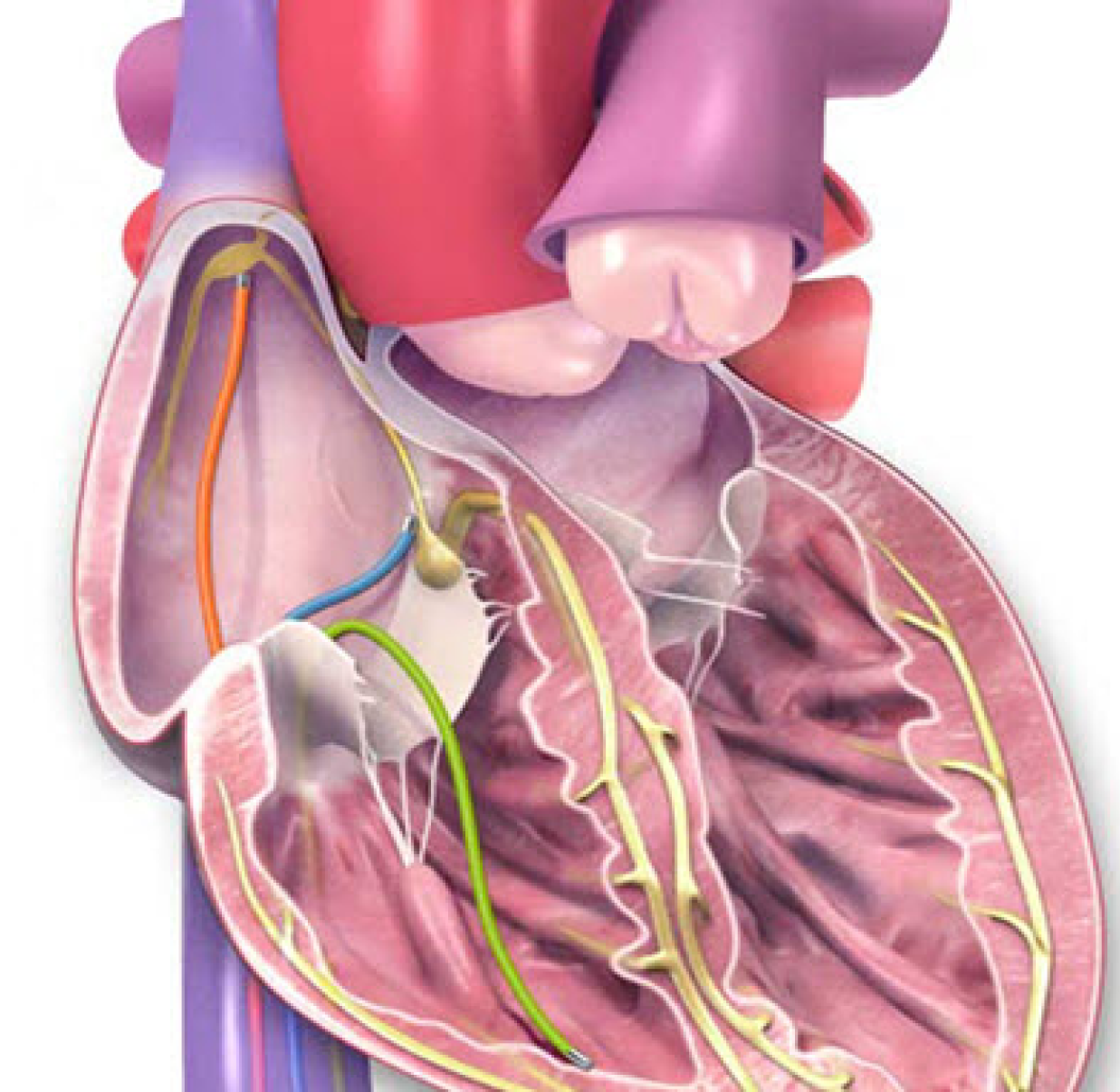
Procedures
Electrophysiology Studies
Electrophysiology Studies
An Electrophysiology Study (EPS) is a specialized test used to evaluate the electrical activity of the heart and diagnose abnormal heart rhythms, also known as arrhythmias. It involves the use of catheters (thin, flexible tubes) and specialized equipment to study the heart's electrical system in detail.
During the procedure, catheters are inserted through a vein or artery in the groin, arm, or neck and carefully guided to the heart. These catheters are equipped with electrodes that can both record electrical signals from various areas of the heart and deliver controlled electrical impulses.
Once in place, the catheters help the healthcare team to stimulate the heart and induce arrhythmias if they are not already occurring naturally. This allows the team to accurately diagnose the type and location of the arrhythmia.
Throughout the procedure, the electrical activity of the heart is continuously monitored and recorded. This information is then analyzed to determine the best course of treatment for the specific arrhythmia.
An EPS is an important tool in the diagnosis and treatment of various heart rhythm disorders. It provides valuable information that helps guide decisions about medication adjustments, the need for catheter-based treatments like ablation, or the implantation of devices like pacemakers or implantable cardioverter-defibrillators (ICDs).
While the procedure may sound complex, it is performed in a controlled medical environment by a specialized team, including cardiologists with expertise in electrophysiology. They ensure your safety and comfort throughout the procedure.
Always consult with your healthcare provider for personalized information and guidance regarding your specific situation.
How is it done?
During an Electrophysiology Study (EPS), the following steps are typically followed:
- Preparation:
- You'll be positioned on an examination table, and the area where the catheters will be inserted (typically in the groin, arm, or neck) will be cleaned and sterilized.
- Local Anesthesia:
- A local anesthetic will be administered to numb the area where the catheters will be inserted. This ensures that you don't feel pain during the procedure.
- Catheter Insertion:
- Thin, flexible tubes called catheters are inserted through a vein or artery in the groin, arm, or neck and carefully guided to the heart. These catheters are equipped with electrodes that can record electrical signals from various areas of the heart and deliver controlled electrical impulses.
- Monitoring:
- Once the catheters are in place, they are connected to specialized equipment that allows the healthcare team to monitor and record the electrical activity of your heart.
- Electrical Stimulation:
- The healthcare team may use the catheters to stimulate the heart and induce arrhythmias if they are not already occurring naturally. This helps in accurately diagnosing the type and location of the arrhythmia.
- Recording and Analysis:
- Throughout the procedure, the electrical activity of your heart is continuously monitored and recorded. This information is then analyzed to determine the best course of treatment for the specific arrhythmia.
- Completion and Recovery:
- Once the necessary data is collected, the catheters will be carefully removed. You'll be moved to a recovery area where you'll be monitored until any effects of sedation or anesthesia wear off.
- Post-Procedure Care:
- You may be advised to avoid strenuous activities and to keep the catheter insertion site clean and dry for a period of time after the procedure.
It's important to note that while complications are rare, as with any medical procedure, there are potential risks, which your healthcare provider will discuss with you before the procedure.
Always follow any specific instructions provided by your healthcare team before and after the test. If you have any concerns or questions about the procedure, be sure to discuss them with your healthcare provider.
What can I expect?
Thorough Medical History Review: The cardiologist will review your medical history, including any existing heart conditions, family history of heart disease, medications, and symptoms you may be experiencing.
Physical Examination: The doctor will conduct a comprehensive physical examination, which may include checking blood pressure, listening to your heart and lungs, and examining other relevant areas.
Discussion of Symptoms: If you're experiencing symptoms like chest pain, shortness of breath, palpitations, or fatigue, you'll discuss them in detail.
Diagnostic Tests: Based on your medical history and symptoms, the cardiologist may order specific tests such as an electrocardiogram (ECG), echocardiogram, stress test, or other specialized cardiac tests.
Interpretation of Test Results: The cardiologist will review the results of any tests and discuss their implications for your heart health.
Diagnosis: Based on the gathered information and test results, the cardiologist will make a diagnosis, which could range from confirming a previously known heart condition to identifying a new issue.
Treatment Plan: If necessary, the cardiologist will discuss treatment options. This could involve medications, lifestyle modifications, procedures, or surgeries.
Education and Recommendations: The cardiologist will provide you with information about your condition, explain any necessary lifestyle changes, and offer guidance on managing your heart health.
Follow-Up Plan: Depending on your diagnosis and treatment plan, you may be advised to schedule follow-up appointments for further evaluation and monitoring.
Addressing Questions and Concerns: You'll have the opportunity to ask any questions or express concerns you may have about your heart health.
Referrals: If specialized care is required, the cardiologist may refer you to other healthcare professionals, such as cardiac surgeons or electrophysiologists.
Medical Records: Your visit and the details discussed will be documented in your medical records.

